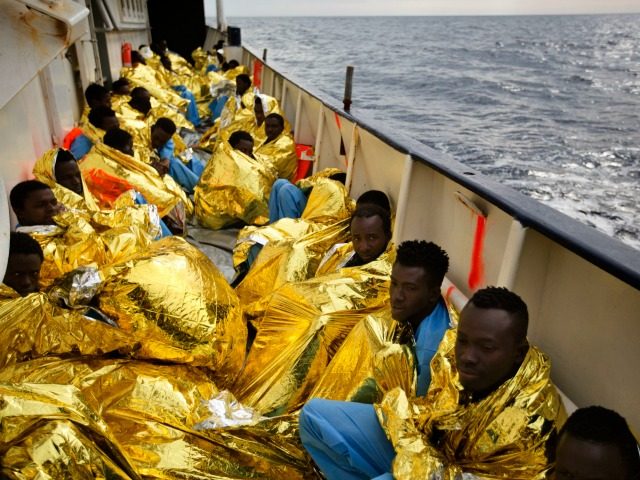An Italian public prosecutor has called for monitoring of the funding of NGOs engaged in rescue operations in the Mediterranean Sea, noting that “the facilitation of illegal immigration is a punishable offense regardless of the intentions.”
The remarks of Carmelo Zuccaro, the chief prosecutor of Catania (Sicily), followed closely on the release of a report last week by the border control agency of the European Union (EU), suggesting that NGOs have been complicit with human traffickers by providing a shuttle service from North Africa to Italy.
In point of fact, the report stated, NGOs engaged in maritime rescue operations “help criminals achieve their objectives at minimum cost, strengthen their business model by increasing the chances of success.”
In an interview with the Italian daily Il Giornale Saturday, Zuccaro said that whether or not the organizations in question are operating out of philanthropic motives, “the facilitation of illegal immigration is a punishable offense regardless of the intention.”
“As of September-October 2016, we became aware of a sudden proliferation of NGOs sea vessels that were picking up the work that the organizers used to do: accompanying migrant vessels into our territory.”
Moreover, he said, a serious question has arisen regarding the provenance of funding for the rescue missions.
“We are aware of huge transaction costs,” Zuccaro said. “In some cases we are talking about 400,000 euros a month, as in the case of a MOAS ship (the Malta-based Migrant Offshore Aid Station).” Another ship called the Aquarius, he noted, from yet another organization, “has a cost of 11,000 euros a day.”
“We could carry out an incisive inquiry into financing,” he said. “Yet at the moment we have suspicions but insufficient evidence to open a criminal investigation, so we can only try to understand indirectly who is funding the operations.”
Zuccaro also underscored the irregular procedures adopted by the rescue organizations in transporting migrants all the way to Italy rather than to the nearest safe port of call, as established by international agreements.
“It’s not a crime to invade the waters of a foreign country to pick them up,” he said. “What is punishable is bringing them to Italy without respecting the rules of engagement, which establish that vessels should take migrants to the nearest port, which is certainly not Italy.”
The chief prosecutor also noted that the State is investigating the phenomenon of Islamic radicalization occurring in prisons and camps where immigrants are hired off the books.
“We have received very specific reports of recruitment activities and radicalization in prisons,” he said. “Regarding camps where foreign laborers are hired off the books, such as in Ragusa, we are in the midst of ongoing investigations.”
“They are radicalized individuals who attract foreigners in order to incite them to fundamentalism,” he said.
Follow Thomas D. Williams on Twitter Follow @tdwilliamsrome

COMMENTS
Please let us know if you're having issues with commenting.